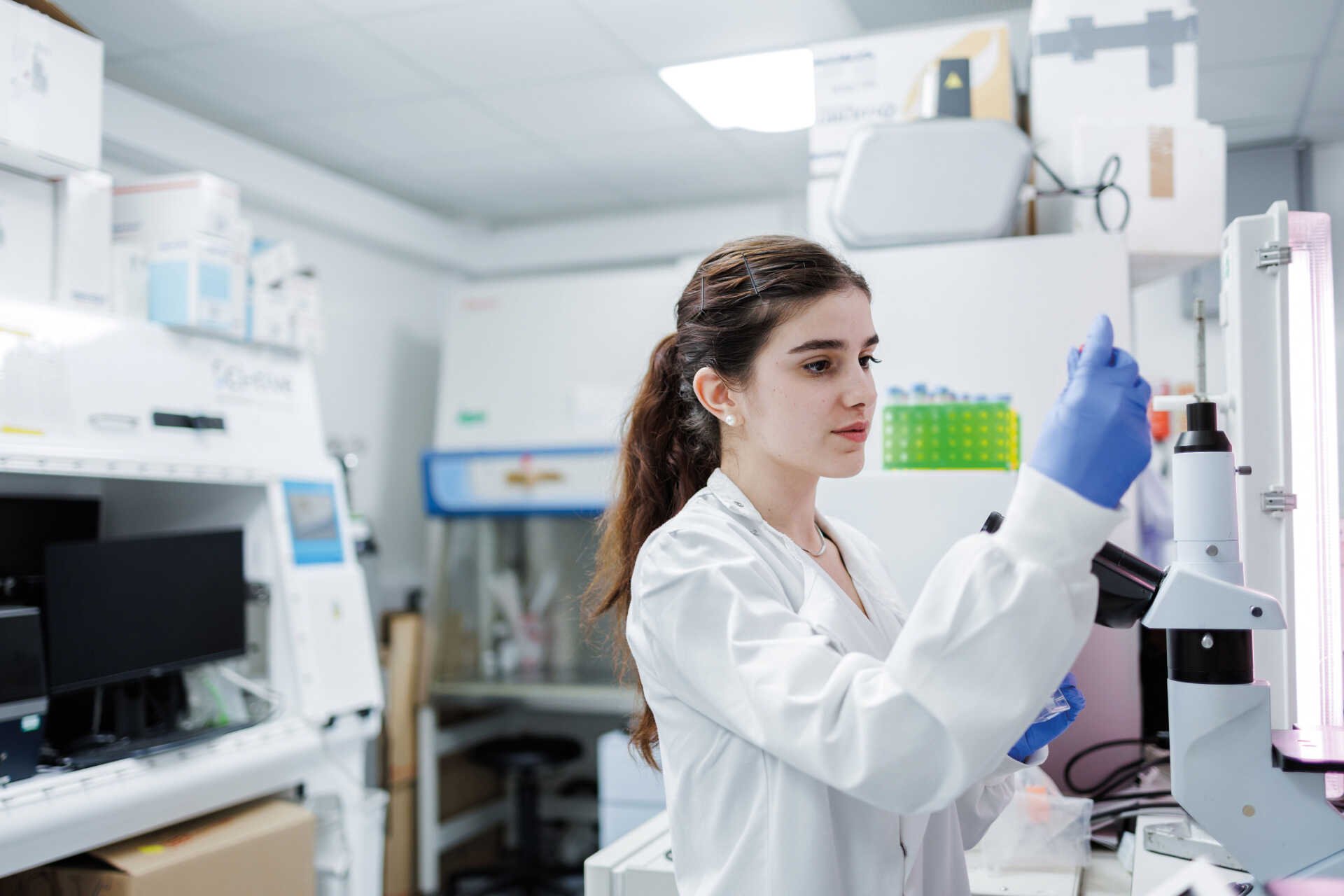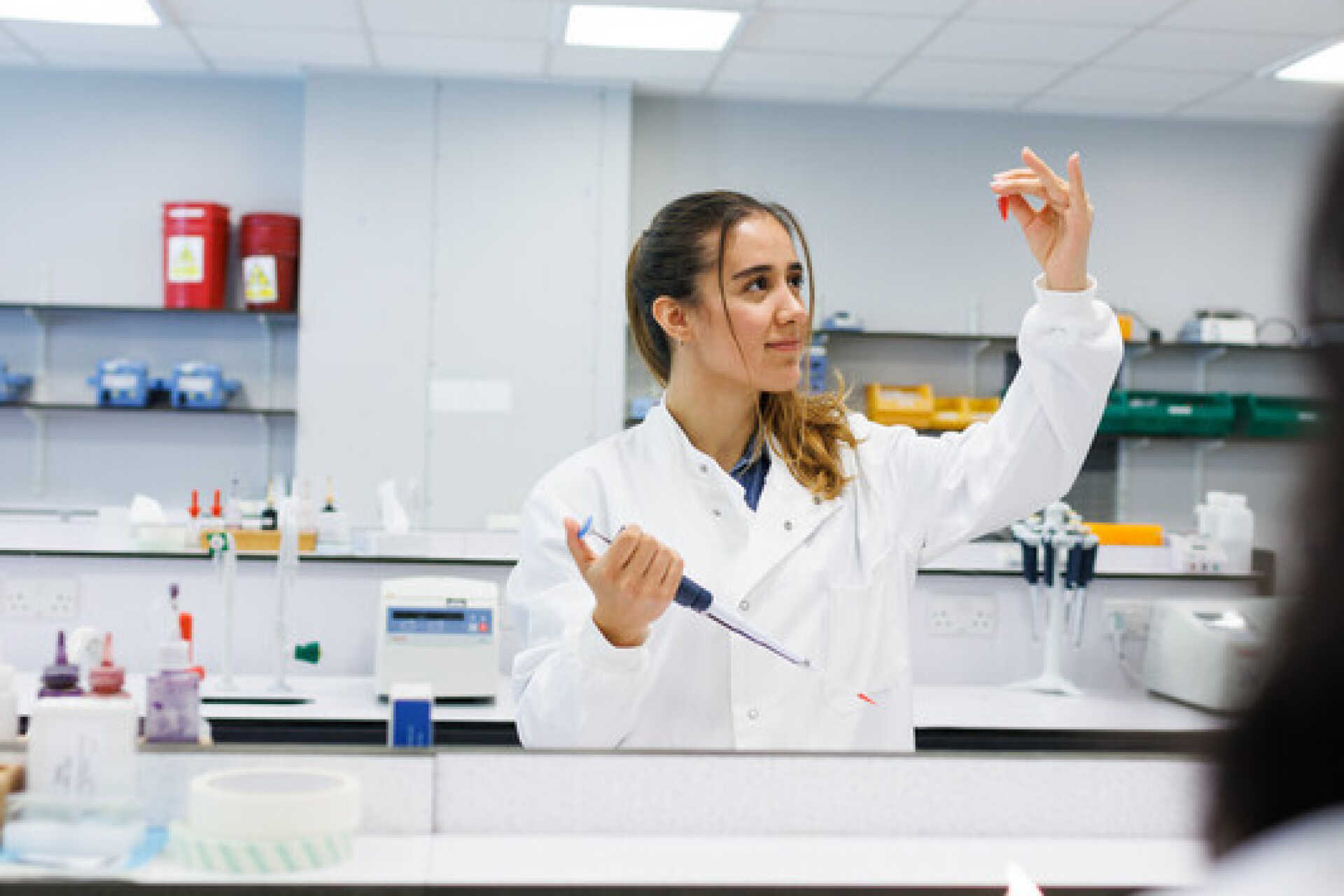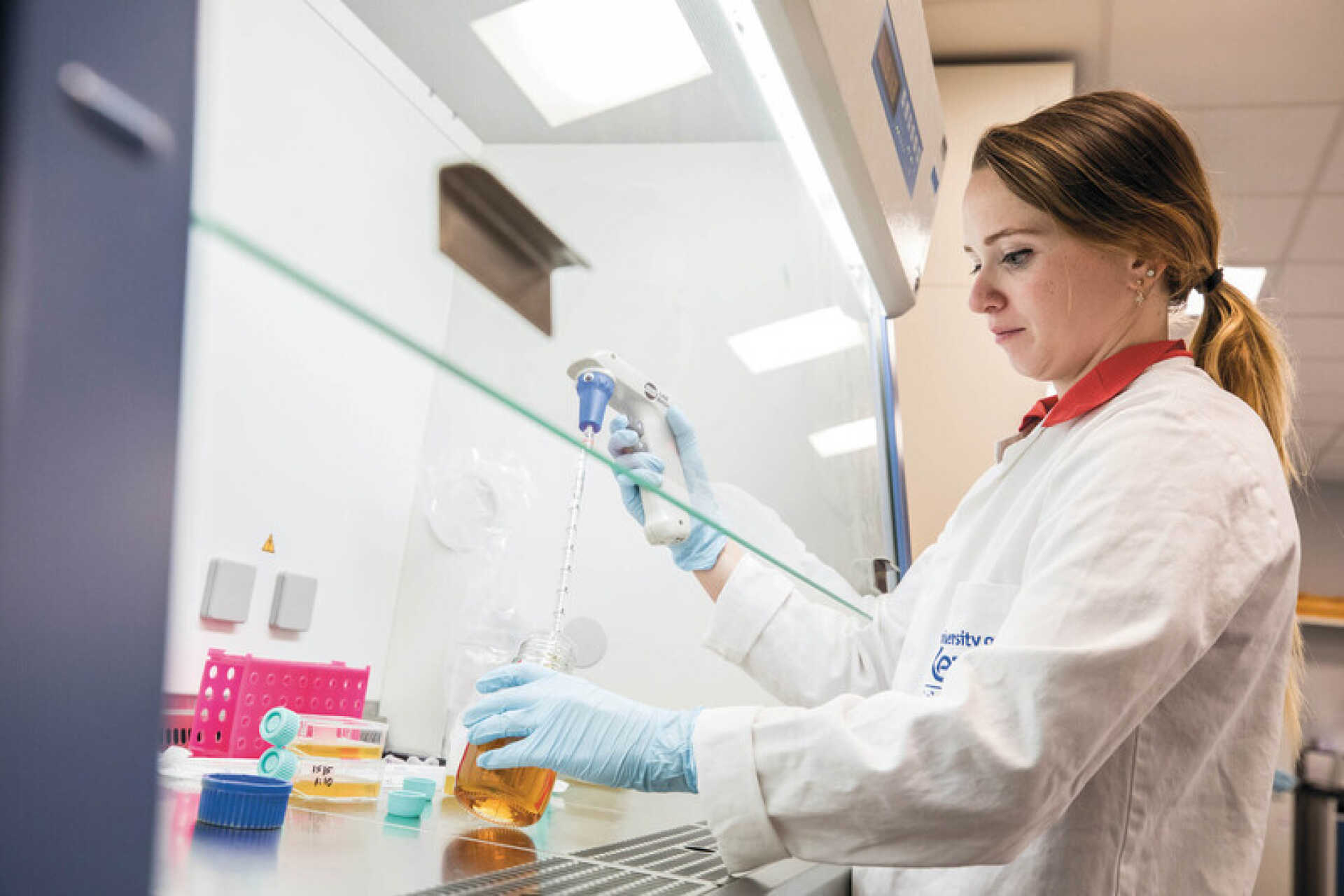What can I do with a degree in Biochemistry?

A Biochemistry degree from the University of Kent equips you with deep knowledge of biomolecules, metabolic pathways, enzymology, and molecular biology. Alongside hands-on laboratory experience and analytical training, you'll be prepared for careers in biomedical research, pharmaceutical science, biotechnology, healthcare, and beyond. Get ideas and inspiration here before booking a one-to-one appointment with a Careers Adviser.
Careers in Biochemistry
The following roles show some of the career options available to Biochemistry graduates, using their scientific knowledge, laboratory skills, and problem-solving abilities.
Biochemist Investigate the chemical processes within living organisms; often employed in R&D labs across healthcare and biotech.
Toxicologist Assess the impact of chemicals, drugs, or environmental agents on biological systems.
Clinical Scientist (NHS) Work in specialist areas like haematology, microbiology, or immunology via the Scientist Training Programme (STP).
Medical Laboratory Assistant/Laboratory technician Support medical research or clinical trials in universities, hospitals, or biotech firms.
Research Scientist Plan and conduct experiments to advance medical knowledge.
Bioinformatics Scientist Analyse biological data to support research and development.
Alternative career paths
Science writer/Science Communication Explain complex scientific content tailored for public, medical, or regulatory audiences.
Regulatory Affairs Officer Ensure pharmaceutical and medical products comply with regulations.
Public Health Analyst Use biomedical knowledge to inform health policy or epidemiological studies.
Medical Sales Scientific product representatives for lab equipment and assays.
Community Education Officer Predominantly related to secondary science or STEM education, increasing widening participation and access for disadvantaged communities.
Secondary School Teacher/Lecturer Teaching science to students age 11-18 or at university and preparing them for their future.
Where do University of Kent graduates work?
This is a selection of organisations that have employed University of Kent graduates in the past. There are many more possible employers in these and other industries.
- Pharmaceuticals & Research: GSK, AstraZeneca, Pfizer, NHS laboratories
- Biotech & Start-ups: Cell and gene therapy firms, diagnostics companies, and life science incubators
- Clinical & Healthcare: Kent & Canterbury Hospital, private testing labs, NHS trusts
- Environment & Policy: DEFRA, conservation charities (studies may require environmental modules)
- Education & Communication: Secondary schools, public health bodies, publishing companies

Find a job
The Careers and Employability Service provides information and advice on job searching to University of Kent students and recent graduates. This includes a vacancy database advertising a range of graduate jobs, placement year and vacation work/internships.
Biochemistry recruitment platforms
Jobs.ac.uk Academic and lab-based roles
Royal Society of Biology Jobs Sector-specific vacancies
NHS Careers Clinical Scientist, Biomedical Scientist roles
New Scientist Pharma, biotech, and life sciences
Science Careers (AAAS) Global research jobs
Tips to stand out
- Demonstrate Research Experience: Highlight your dissertation, independent project, or lab placement. Add these to your CV.
- Get a year in industry: A professional placement year in a clinical or research setting greatly enhances your employment prospects and develops technical skills.
- Build bioinformatics or coding Skills: Familiarity with R, Python, or BLAST tools are in high demand.
- Develop science communication: Present at conferences, write blog posts, or engage in outreach.
- Join a professional body: Student membership with the Royal Society of Biology or Biochemical Society adds credibility and opens networking opportunities. Become part of BioSoc at Kent to demonstrate commitment.
- Network: Use LinkedIn and Kent’s Career Mentoring scheme to build connections with alumni and professionals to gain insights into your target roles and industries.

Year in industry
A year in industry can have a big impact on your employability. By gaining real-world experience and learning key skills in the workplace, and pairing these with the knowledge you gain on your degree, you can become a highly employable candidate in the labour market. The year can be based in the UK or abroad, including your home country if you're an international student, and contribute to your final degree. At The University of Kent, many courses include an optional year in industry between your second and final year, where you undertake graduate-level work related to your studies.
Further study
Some graduates pursue further qualifications to specialise or qualify for specific roles:
- MSc/MRes in Biochemistry, Molecular Biology, Biomedical Science, Bioinformatics, or Drug Design
- PhD or DPhil in research-intensive careers
- PGCE/Teacher Training for secondary science teaching
- HCPC Clinical Scientist registration (via STP or relevant MSc pathway)
- Graduate Entry Medicine/Dentistry For those with strong academic performance